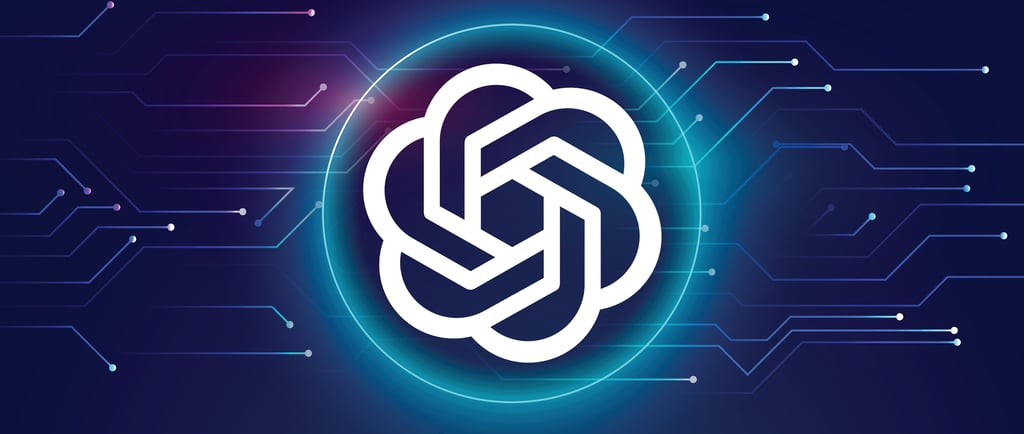Cultural Pillage: Ghibli, Bandai Namco, Square Enix Sue OpenAI
Studio Ghibli, Bandai Namco and Square Enix blast OpenAI’s “opt-out” stance as “cultural colonialism” and ask Tokyo District Court to block Sora 2 distribution.
AI, DATA & EMERGINGPOLITICS


Cultural Pillage: Studio Ghibli, Bandai Namco and Square Enix Attack OpenAI in Landmark Lawsuit
Tokyo, 5 November 2025 – In a stunning escalation of the global clash over generative-AI training data, three pillars of Japanese pop culture filed coordinated suits against OpenAI in the Tokyo District Court late Monday night. Studio Ghibli, Bandai Namco and Square Enix accuse the San Francisco firm of “systematic cultural piracy” by ingesting copyrighted anime films, video-game cut-scenes and character designs into the video model Sora 2 without permission. The companies seek a permanent injunction against distribution of the model in Japan, public disclosure of the training dataset, and statutory damages that could top ¥120 billion (≈ $780 million).
From polite letters to courtroom showdown
Tension had been simmering since 28 October when the Content Overseas Distribution Association (CODA) delivered an open letter demanding OpenAI stop using Japanese IP and scrap its controversial “opt-out” policy. CEO Sam Altman responded with a blog post promising “more granular controls” and hinted at revenue-sharing, but plaintiffs say the olive branch arrived too late. “An opt-out regime is colonial logic applied to culture,” Ghibli president Koji Hoshino told reporters. “We prefer an opt-in world where consent precedes ingestion, not profits.”
The evidence cache
Court documents seen by IGN include side-by-side stills: a Sora 2 clip of a soot-sprite village versus My Neighbor Totoro (1988) storyboards; a 12-second video of a spikey-haired swordsman that Square Enix claims reproduces Final Fantasy VII Remake camera angles frame-for-frame; and a 360° shot of a giant mech whose armour plates match serial numbers used in Bandai’s Gundam plastic-model kits. Digital forensics outfit CyberTrace estimates “> 4.2 % of Sora 2 outputs contain pixel-level similarity to CODA-member works”, enough to trigger Japanese copyright law which has no parody defence for commercial use.
Legal strategy: Japanese copyright meets U.S. fair-use clash
OpenAI is expected to invoke U.S. fair-use doctrine, arguing that training is transformative and non-expressive. Plaintiffs will counter with Article 30-4 of Japan’s Copyright Act, which allows text-and-data mining only when “the work is not enjoyed for its original expressive purpose”—a line they say Sora 2 crosses when it outputs recognisable characters. “There is no system allowing one to avoid liability through subsequent objections,” CODA’s brief states, referencing Altman’s opt-out promise.
Billions in exposure
Statutory damages in Japan run up to ¥1 million per infringed work. Multiply by the 800-plus episodes of Pokémon, 26 Gundam TV series and 23 Final Fantasy titles allegedly scraped and the exposure snowballs. Square Enix’s general counsel Yuki Okada hinted the final claim could match Sony’s ¥140 billion purchase of FUNimation, sending a warning to any platform that “commodifies 50 years of Japanese storytelling without a licence.”
Collateral damage for Microsoft and Nvidia
OpenAI isn’t the only defendant. The suits name Microsoft Azure and Nvidia DGX as “facilitators” because they supplied cloud compute and GPUs used during training. If the court accepts joint-liability theory, cloud giants may face ancillary damages and be forced to screen datasets before leasing super-computing clusters—a precedent that could chill AI development worldwide.
Global reaction: from Silicon Valley to Shibuya
Authors including George R. R. Martin and Disney have already sued OpenAI, but the Japanese offensive adds cultural sovereignty to the mix. U.S. Motion Picture Association chairman Charles Rivkin backed the plaintiffs: “OpenAI needs to take immediate and decisive action; well-established copyright law safeguards creators”. Meanwhile, #ProtectJapanContent trended worldwide on X, with fans posting mash-ups of Totoro battling Sora-generated clones.
What OpenAI says
In a brief statement, OpenAI said it is “reviewing the complaints and remains committed to constructive dialogue with creators.” Sources close to the company say Altman may fly to Tokyo next week for closed-door mediation, but plaintiffs insist any settlement must include retroactive licensing fees and a Japan-only kill-switch for Sora 2 if infringement reoccurs.
Bottom line
The courtroom battle is bigger than anime stills or game cut-scenes; it is a referendum on whether AI giants can mine foreign cultures first and negotiate later. A victory for Ghibli, Bandai and Square Enix would force the industry toward permission-based training, while a loss could embolden further scraping. Either way, the age of “move fast and copy things” may be headed for a samurai showdown under Japanese law.
Sources
IGN – CODA letter to OpenAI, 1 Oct 2025
GamesRadar – “No system allowing one to avoid liability”, 1 Nov 2025
Game Developer – CODA claims infringement over Sora 2, 3 Nov 2025


